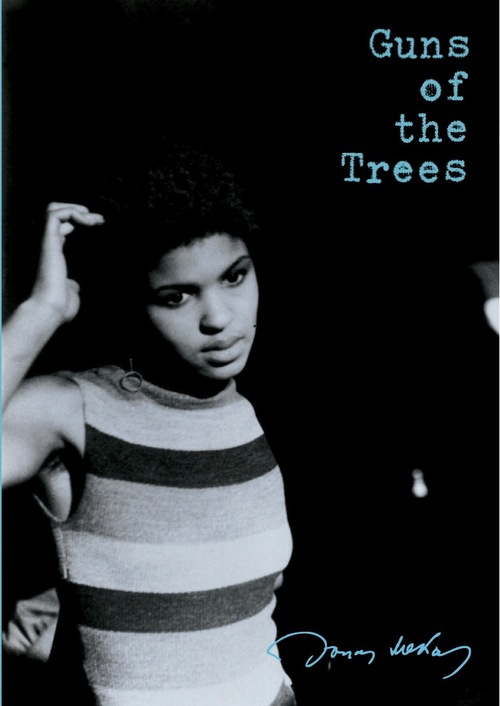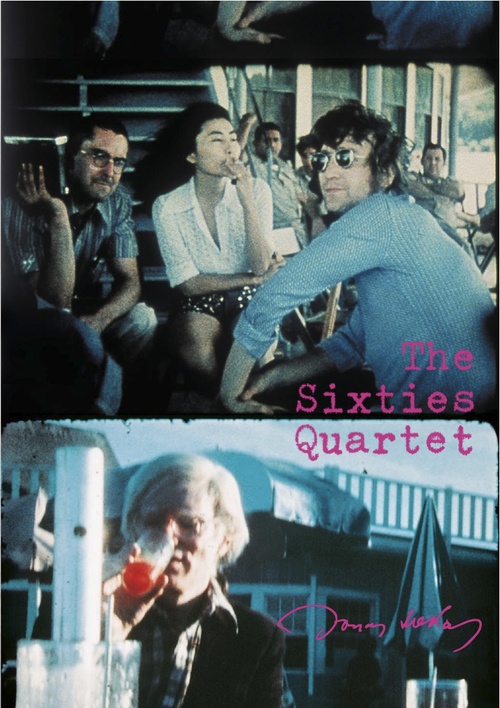THE FILMS OF JONAS MEKAS
Jonas Mekas was born in Lithuania in 1922. In 1944, Jonas and his brother Adolfas (HALLELUJAH THE HILLS - also available from GME) were taken by the Nazis to a forced labor camp in Germany. After WWII he studied philosophy at the University of Mainz. At the end of 1949, the UN Refugee Organization brought both brothers to New York, where they settled in Williamsburg, Brooklyn. Immediately acquiring a 16mm Bolex camera, Jonas began filming his surrounding environment and friends, that he later assembled into films primarily centered on the dual themes of exile and assimilation. Jonas developed his diary style of filmmaking while simultaneously becoming immersed as a magazine editor and publisher (Film Culture), film critic (The Village Voice), distributor (the New York Film-Makers Cooperative), programmer (the Film-Makers' Cinematheque), and archivist (Anthology Film Archives). In short, Mekas soon became, in singular fashion, the most significant force behind the evolution and promotion of the American Avant- Garde film movement.
"Mekas's enthusiasm for his contemporaries and his modesty and reticence about his own achievements as a film-maker contributed to an underestimation of his stature in the sixties and seventies...Congruent with the magnitude of his recording of the pulse of the New York art world for forty years is his slow revelation of the reflective self. By the nineties it was apparent that Mekas was one of the central filmmakers of the American avant-garde."
– P. Adams Sitney, Visionary Film
“They tell me I should be always searching. But I’m only celebrating what i see.”
- Jonas Mekas
"Since 1950, I have been keeping a film diary. I have been walking around with my Bolex and reacting to the immediate reality: situations, friends, New York, seasons of the year. On some days I shot ten frames, on others ten seconds, still on others ten minutes. Or I shoot nothing. When one writes diaries, its' a retrospective process: you sit down, you look back at your day, and you write it all down. To keep a film (camera) diary, is to react (with your camera) immediately, now, this instant: either you get it now or you don't get it at all. To go back and shoot it later, it would mean restating, be it events or feelings. To get it now, as it happens, demands the total mastery of one's tools (in this case, Bolex): it has to register my state of feeling (and the memories) as I react. Which also means that I had to do all the structuring (editing) right there, during the shooting, in the camera."
– Jonas Mekas
Jonas Mekas (US)
This 7-Disc DVD Box Set, co-published by Re:Voir Video, Agnès B DVD and Potemkine, brings together, for the very first time, the key films created by Jonas Mekas. These collected works, that span a filming career of more than 60 years, re-affirm his stature as one of the most prolific avant-garde filmmakers and pre-eminent cinema poets. The films in this boxed set comprise THE BRIG (1964), WALDEN: DIARIES, NOTES AND SKETCHES (1969), REMINISCENCES OF A JOURNEY TO LITHUANIA (1972), LOST, LOST, L0ST (1976), AS I WAS MOVING AHEAD OCCASIONALLY I SAW BRIEF GLIMPSES OF BEAUTY (2000), as well as 11 bonus extra shorts, including CASSIS (1966), REPORT FROM MILLBROOK (1965-66), and WILLIAMSBURG (1949-2002).
Jonas Mekas, William Mass & Marie Menken (US)
VISIONS OF WARHOL presents images from the life of Andy Warhol, as seen by three pioneer avant-garde film-makers and close friends of the Pop-artist – Willard Mass, Marie Menken, and Jonas Mekas. The irrepressible force behind the promotion and preservation of experimental film, Mekas documents giving Warhol the Film Culture Independent Film Award in AWARD PRESENTATION TO ANDY WARHOL (1964).
Jonas Mekas (US)
In GUNS OF THE TREES (1962), according to Mekas, "Four young people are trying to understand why their friend, a young woman, committed a suicide. A film made up of disconnected scenes weaving between past and present. The title of the film comes from a poem by Stuart Perkoff which tells that some young people felt (around 1960) that everything is against them, so much that even the trees in the parks and streets seemed to them like guns pointing at their very existence.”
HE STANDS IN A DESERT COUNTING THE SECONDS OF HIS LIFE
Jonas Mekas (US)
Comprising footage filmed between 1969 and 1985, Mekas indicates that "The film consists of 124 brief sketches, each half-a-minute to about two minutes long. Portraits of people I have spent time with, places, seasons of the year, weather (storms, snow, blizzards etc...) many of my film-maker friends- streets and parks of New-York- brief escape in nature, out of town- nothing spectacular, unimportant celebrations of life that has gone, by now, and remains only as a record in these personal, brief sketches."
Jonas Mekas (US)
THE SIXTIES QUARTET is a compilation DVD of four films that Mekas made, centering on noteworthy cultural icons in his artistic circle: Pop artist Andy Warhol, Fluxus founder George Maciunas, musician John Lennon, and Jackie Kennedy and Lee Radziwill with their children at Warhol’s Montauk estate after the untimely death of JFK.
Jonas Mekas, Adolfas Mekas, Pola Chapelle (US)
Adolfas and Jonas Mekas arrived in New York in 1949, leaving their native land, Lithuania, behind, caught between Nazi and Soviet occupation. Little by little the camera became their means of expression and cinema invaded their lives. 27 years passed before they could finally return to Lithuania. This is the odyssey the three films intertwiningly recall: Adolfas and Jonas Mekas and Pola Chapelle (Adolfas'ʼwife) are at once actor and filmer. The Mekas brothers rediscover their country and family with their changes, while Pola Chapelle is the external gaze embracing this reunion. Neither Lithuanian nor New Yorkers, where is their home now? As Jonas likes to say “My Country is Cinema.”








